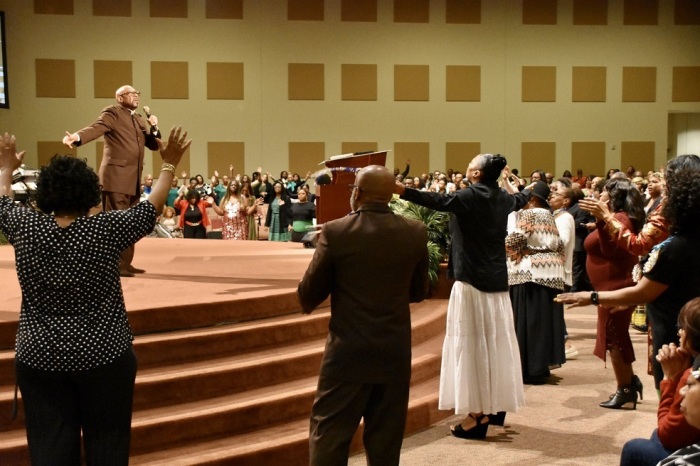Nearly a fifth of religious Americans still attending worship services: poll

Nearly one in five United States adults who consider themselves religious are still attending worship services amid concerns over the coronavirus pandemic, according to a newly released poll.
The poll was conducted March 23-25 by three political scientists: Paul Djupe of Denison University, Ryan Burge of Eastern Illinois University, and Andrew Lewis of the University of Cincinnati. It focused on a national sample of 1,038 people who said they attend services “more often than never,” with the margin of error being 3 percent.
The researchers found that while 88 percent of respondents said that their house of worship canceled services or was closed, 17 percent were still attending in-person services of some kind, as reported by Buzzfeed News.
“Djupe speculated that … some of the 17% who said they were still attending in-person services, may have been referring to smaller worship groups outside of their churches or temples, though this was not a question that had been asked in the survey,” Buzzfeed reported.
The poll also found that 22 percent of respondents said that they were “encouraged” to attend in-person worship services “because of the virus.”
Additional findings were published in a report titled "Would They Rather be Dead Right? Support for Congregations Staying Open."
Djupe and his colleagues asked respondents if they agreed with the statement "The freedom to worship is too important to close in-person religious services due to the coronavirus."
Among respondents whose church was open, 48.9 percent either agreed or strongly agreed with the statement, while 32.5 percent of respondents whose church was closed agreed or strongly agreed with the statement.
When asking if they trust clergy to have their best health interests at heart, 65.3 percent of respondents whose church was closed agreed or strongly agreed with the statement, while 51 percent of respondents whose church remained open agreed or strongly agreed.
"There are multiple dimensions on which to think about the tension between public health and corporate worship, but perhaps the most salient, especially for Americans, is when a social good bumps up against their rights," wrote Djupe.
In recent weeks, large numbers of churches have canceled their in-person worship services in response to concerns that the gatherings could spread the coronavirus.
While many congregations have switched to online worship, some churches have decided to continue holding services in spite of the pandemic concerns.
For example, Solid Rock Church, a megachurch based in Ohio, announced that they were not going to cancel their in-person services, receiving much criticism online for the decision.
“There is no pressure from Solid Rock Church to require anyone to come to our services. We are respectful of every individual’s right to choose either to come to our service or to watch online,” stated the church.
“We do believe that it is important for our doors to remain open for whomever to come to worship and pray during this time of great challenge in our country.”
While Ohio Governor Mike DeWine did exempt houses of worship from an executive order banning large gatherings, he took to social media to implore churches to close in response to the pandemic.
“We did not order religious organizations to close, but my message to EVERYONE is that this is serious. When you are coming together, whether in a church or wherever - this is dangerous,” stated DeWine on Twitter.
“We have the ability to do religious services other ways. I implore religious leaders to think about their congregations. Gathering in groups is dangerous.”



























